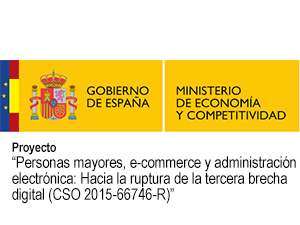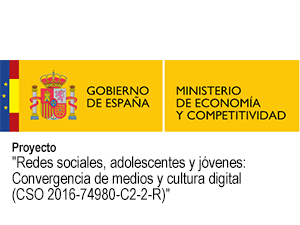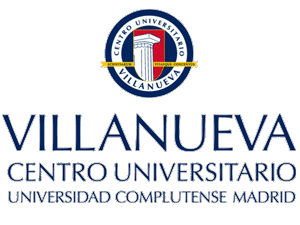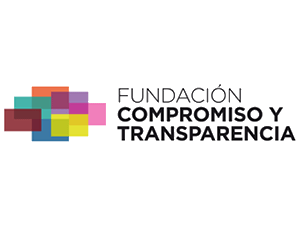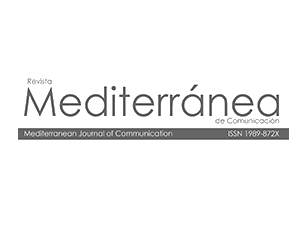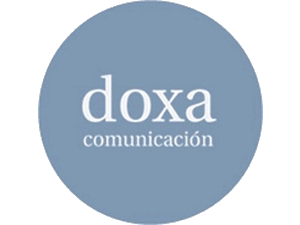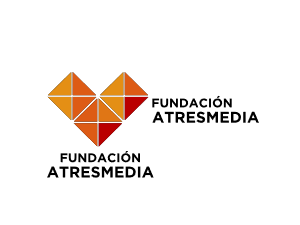Resumen
La experiencia presentada parte de un proyecto coeducativo de prevención de ciberviolencias machistas financiado por el Área de Igualdad del Ayuntamiento de Miranda de Ebro (Burgos) realizado durante el curso 2016-2017, en los cinco centros educativos de secundaria del municipio.
El programa de talleres, denominado Ctrla, que integra las nuevas tecnologías de la información, comunicación y relación, (TRICs) y el género, se centra en internet como un espacio en el que se reproducen violencias machistas, para analizar diferentes contenidos actuales y accesibles a la juventud (youtubers, música, películas, videojuegos, publicidad), y trata de desmitificar creencias que fomentan la violencia y ciberviolencia, fomentando una cultura de buen trato, empatía e igualdad entre chicas y chicos.
Con el objetivo de sensibilizar y prevenir sobre las ciberviolencias se establecieron contenidos y temas que trabajar sobre roles de género y estereotipos, violencia simbólica, ciberacoso y control en las relaciones y ciberviolencias. En todos ellos, los contenidos fueron adaptados según nivel educativo y también al ritmo y la dinámica de funcionamiento de cada grupo, pero incluyendo en todos los casos el análisis de cómo las tecnologías, los videojuegos, las redes sociales, o los contenidos presentes en internet influyen en la normalización de ciertas formas de ciberviolencia, y fomentando un análisis crítico de estos contenidos. Por otro lado, y con el objetivo de empatizar con las personas que viven ciberviolencias, se realizaron dinámicas emocionales en los que el alumnado reflexionaba sobre los contenidos que comparten en las redes sociales y las consecuencias que pueden tener el envío de contenidos de otras personas o participar de los insultos viralmente.
Para ello, se realizaron talleres con un total de 1.733 alumnas y alumnos de 1º, 2º, 3º y 4º de ESO y FP, en diferentes opciones de talleres, de 2 horas a 8 horas por grupo, que se ajustaban según la demanda y disposición de cada centro educativo.
Con la intención de medir la efectividad de las sesiones, y comprobar si se generan cambios en las opiniones del alumnado a partir de la realización de los talleres, se realizó una medida pretest-postest con el alumnado de los grupos que participaron en más de 5 horas de talleres. Para ello, en los 32 grupos de alumnado que cumplían ese criterio, se pasó al comienzo de la primera sesión y al final de la última, una escala basada en los objetivos y contenidos de los talleres. Esta escala constaba de 10 afirmaciones a las que responder del 1 al 5, y permite comprobar la posición de las chicas y los chicos ante las cuatro grandes temáticas trabajadas.
En total, se contabilizaron 640 personas que realizan el análisis pretest y post-test. Entre los resultados más significativos se encuentra una reducción de prejuicios sexistas y estereotipos, un aumento de las personas que visibilizan la presión que ejerce la sociedad sobre sus cuerpos a través de cánones de belleza que ejercen violencia simbólica, disminuye el grupo de personas que normalizan el ciberacoso y el control en las relaciones y aumenta el número de quienes no culpabilizan a las chicas de la difusión de imágenes en las redes.
Palabras Clave / Adolescentes / Ciberviolencias / coeducación / Educación emocional / T(R)ICs
Abstract
The present experience is based on a coeducative project of macho-driven cyberviolences prevention, which is funded by Equality Area of Miranda de Ebro (Burgos) council, and it is done during 2016-2017 course, in the five high schools of this village.
The workshops programme, denominated as Ctrla, integrates the information, communication and relationship technologies (ICRT) and of gender. This programme is focused on Net as a space in which macho-driven violences are reproduced. In this way, different updated and accessible contents for young people are analysed (YouTubers, music, films, videogames, publicity…), and it is tried to mythicize beliefs which foment the (cyber)violence, promoting a good- behaviour culture, empathy and equality among girls and boys.
With the aim of making aware and preventing those cyberviolences, it is proposed contents and topics related to gender roles and stereotypes, symbolic violence, cyber-harssment and control of relationships, and cyberviolences. All these topics were adapted to educational level and, also, to rhythm and the dynamic of the each group operating. Nevertheless, in all groups it is included the analyse of the influence which have internet in the normalization of some ways of cyberviolence, and it is promoted a critical view of these contents. On the other hand, and with the objective of empathizing with people who live cyberviolence, emotional dynamic were done, in which students reflect about the contents that they share in social networks and the consequences of sending other people´s contents or taking part in viral insults.
In order to achieve these objectives, the workshops were done with 1.733 students of first, second, third and fourth course of secondary and professional training. There are different options for integrating the workshops, they could be from 2 to 8 hours per group, and they were integrating depending on the demand and the disposition of each high school.
With the objective of measuring the effecacy of these sessions, and verifying if they generate changes into the opinions of the students, it was done a measure of pre/test-post/test with the students of the groups which took part in more than 5 workshops. For this, in the 32 groups of students, which fulfil this criterion, in the beginning of the first session and in the end of the last, a scale, which based on the objectives and contents of the workshops, is passed. Concretely, this scale consist of 10 sentences for answering from 1 to 5, and they could verify the position of girls and boys in front of four big topics which are worked.
In total, 640 people answer to pre/test and post/test. Among the most significant results, it is found: a reduction of sexist prejudice and stereotypes; an increase in the number of people who make visible the society pressure which exert in our bodies through the beauty canons that come from symbolic violence; a decrease in the number of people who normalize the cyberharassment and the control of relationships; and an increase in the number of students who don´t put the blame on girls due to the diffusion of images in the networks.
Keywords / Coeducation / cyberviolences / emotional education / ICRT / teenagers
FIRMANTES
| Nombre | Adscripción | Procedencia |
|---|---|---|
| Ianire Estébanez Castaño | Freelance. Universidad del País Vasco - Universidad de Deusto | Bilbao, Bizkaia, Spain |






